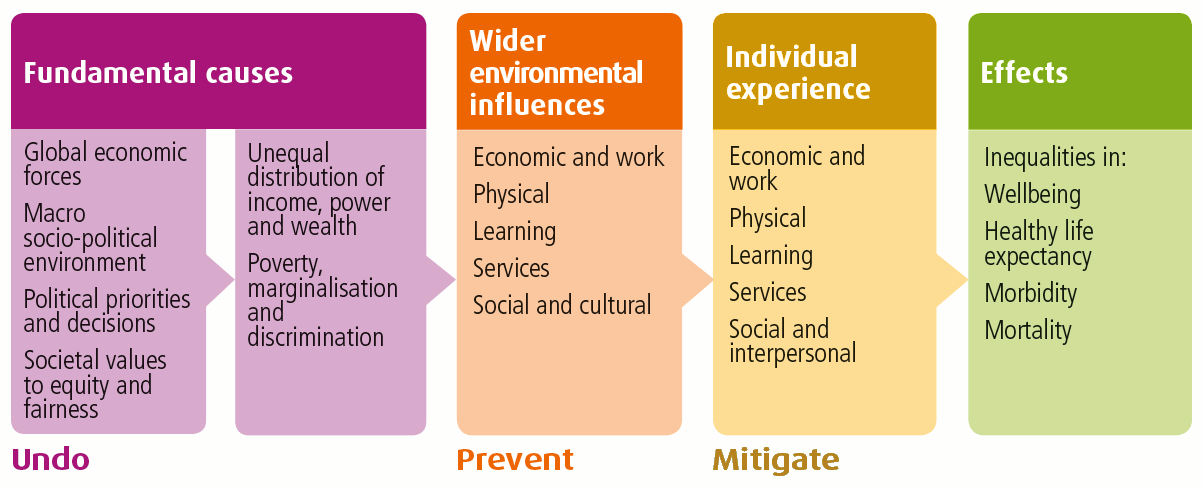Table of ContentsOur Who Is Eligible For Care Within The Veterans Health Administration IdeasNot known Facts About How Does Universal Health Care WorkThe 9-Minute Rule for What Is A Health Care Delivery SystemThe Buzz on How To Start A Home Health Care BusinessA Biased View of When An Employee Takes Fmla Leave
It confirmed the gadgets' security and efficacy in medical trials, which greatly simplified compensation approval from insurance providers. And, of course, there was no effective Tums equivalent as an alternative. HCA (originally called Health center Corporation of America) effectively pioneered an organisation design innovation that enabled it to combine the management of lots of centers and therefore recognize economies of scale unknown in the fragmented health care industry.
Instead, it grew primarily through growth into underserved neighborhoods, where customers were grateful for a local hospital and where doctors welcomed the opportunity to operate in modern-day facilities. The certainty of compensation from insurers and Medicare allowed HCA to borrow heavily for construction, and its access to the equity markets as a public business used funding that was not available to nonprofit medical facilities.
history. No criminal charges were brought versus the business, and some individuals wondered whether a not-for-profit organization would have paid so a lot for its alleged misdeeds. But the publicly traded company weathered the crisis and, with a brand-new management team in location, has actually continued to carry out well. The structure described in this articlethe three types of health care innovation and the 6 forces that affect themoffers a beneficial way to examine the barriers to development in healthcare systems outside the United States, too.
For apparent reasons, the single-payer system prevents customer-focused innovation. But it also seriously constrains technology-based innovation. The federal government's requirement to strictly control expenses equates into less money to invest in care of the genuinely sick, who are the target of a lot of technology-based development. Consequently, a big venture-capital neighborhood hasn't grown up in Europe to fund new health technology ventures.
Who Is Eligible For Care Within The Veterans Health Administration? - Truths
The centralized nature of the systems would seem to use the capacity for development in the treatment of illness where a great deal of combination is required, however the record is mixed. Customized to fit the scenario, this framework can likewise be utilized to evaluate the barriers to innovation in a variety of markets.
Medical insurance is a type of insurance coverage that covers the expense of an insured person's medical and surgical expenditures. Insurance companies use the term "company" to explain a center, hospital, doctor, lab, healthcare practitioner, or drug store that treats an individual. The "insured" is the owner of the health insurance coverage policy or the individual with the medical insurance coverage.
In countries without universal health care coverage, such as the United States, medical insurance is typically consisted of in company benefit packages (how many countries have universal health care). In the U.S., the number of individuals with insurance coverage decreased from 44 million in 2013 to less than 28 million in 2016, according to the Kaiser Family Structure. The scientists put this down to recent modifications in legislation.
residents of working age experienced a gap in medical insurance protection. Lots of individuals in the survey lost their medical insurance when they either became jobless or altered jobs. The level of treatment in emergency departments differs considerably depending upon what type of health insurance an individual has. Insurance can seem perplexing, but selecting the right product can be essential for your family's health in the United States.
The Best Strategy To Use For When It Comes To Health Care

healthcare system relies greatly on personal health insurance coverage. In the National Health Interview Survey, scientists discovered that 65.4 percent of individuals under the age of 65 years in the U.S. have a type of personal medical insurance coverage. In this kind of insurance, the state subsidizes health care in exchange for a premium.
In this kind of plan, the Visit this page insurance provider will have contracts with a network of doctor to give lower-cost treatment to their policyholders. There will be charges and additional expenses included to out-of-network health centers and clinics, however they will provide some treatment. The more pricey the policy, the more flexible it is likely to be with the network of health centers.
The insurance company will usually pay for a minimum of 80 percent of expenses on an indemnity strategy, while the client pays the staying costs as a co-insurance. These are organizations that offer healthcare straight to the insured. The policy will typically have a devoted primary care doctor that will collaborate all necessary care.

This is usually the cheapest kind of strategy. A PPO is similar to an indemnity plan, in that they allow the insured to check out any medical professional they prefer. The PPO likewise has a network of approved companies with which they have actually negotiated costs. The insurer will pay less for treatment with out-of-network companies.
9 Easy Facts About You Should Examine All Of The Following Except Explained
A POS plan works as a mix of an HMO and PPO. The insured can pick between collaborating all treatment through a primary care physician, receiving treatment within the insurer's company network, or utilizing non-network providers. The type of strategy will dictate the progress of treatment. The kind of plan determines how a person will approach getting the treatment they need and just how much money they will require to pay on the day.
Congress introduced a brand-new alternative, the Health Cost Savings Account (HSA). It is a combination of an HMO, PPO, indemnity plan, and savings account with tax advantages. Nevertheless, an insurance policy holder should pair this type with an existing health plan that has a deductible of over $1,100 for people and $2,200 for households.
If an HSA is spent for by an employer on behalf of their workers, the payments are tax-free. A person can develop funds in the HSA while they are healthy and save for circumstances of bad health later on in life. Nevertheless, people with chronic conditions, such as diabetes, might not have the ability to conserve a big amount in their HSA as they routinely need to pay high medical costs for the management of their health issue (how does electronic health records improve patient care).
There is more https://diigo.com/0icq4t overlap as plan types evolve. The differences between kinds of policy are ending up being a growing number of blurred. The bulk of indemnity plans use managed care strategies to control costs and make sure that there are enough resources to pay for suitable care. Likewise, many managed care strategies have actually embraced some attributes of fee-for-service strategies.
Not known Details About What Does Universal Health Care Mean
An individual without health insurance needs to pay a fine. Nevertheless, the Person Required in the ACA has actually been gotten rid of from the legislation, implying that insurance will no longer be a legal requirement in the U.S. since 2019. If the policy likewise covers the children in the household, a person is permitted to be on their parents' insurance till the age of 26 years, even if they are: marriedliving away from homenot financially based on their parentseligible to be consisted of on their company's coverInsurance is controlled at a state level, indicating that purchasing a policy in one state is different from doing so in another.
People need to be sure to have their broker or customer care representative talk about the impact of any changing legislation on their specific policy.
A contract that requires your health insurance provider to pay some or all of your health care expenses in exchange for a premium (when does senate vote on health care bill).